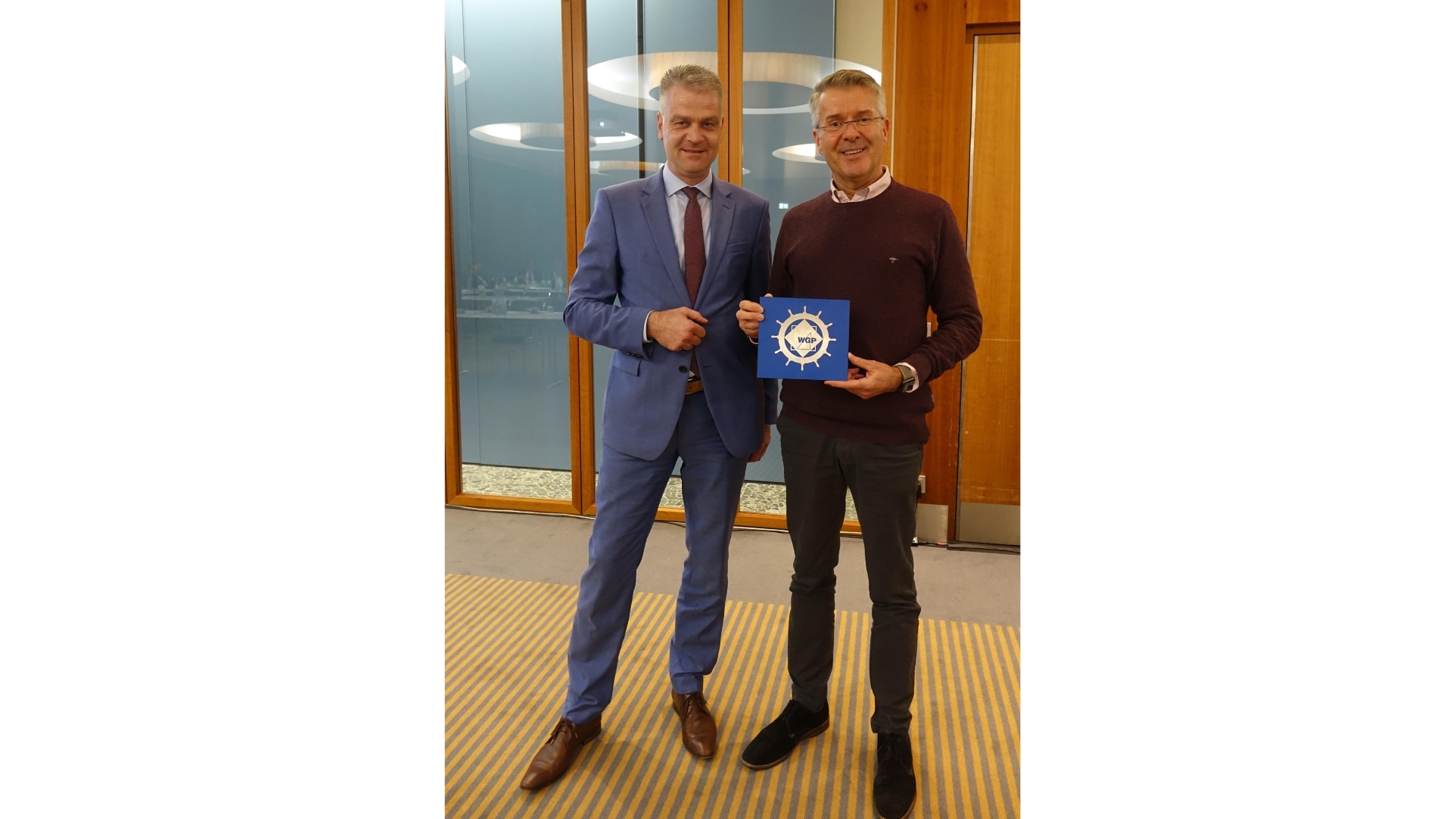Prof. Jens P. Wulfsberg, Head of the Laboratory of Production Engineering (LaFT) at the Universität der Bundeswehr in Hamburg, has been the new President of the WGP (Wissenschaftliche Gesellschaft für Produktionstechnik) since the beginning of 2022. He succeeds Prof. Christian Brecher, Head of the Chair of Machine Tools WZL at RWTH Aachen University, who held the office for the previous two years. "As President, I will do everything in my power to ensure that the WGP's research focuses even more strongly than before on new targets. We bear responsibility for the future. And as things stand, the predominant focus on increasing productivity and decreasing unit costs in production research is no longer enough. We need to think outside the box and increasingly include topics such as ecological, economic and social sustainability and resilience in production in our research portfolio. Last but not least, this includes influencing consumer behavior through new business models and value creation systems."
As an association of leading professors of production technology in Germany, the WGP has been working on sustainable and resilient production for several years - topics that have been brought to the public's attention at the latest by the discussion on increasing resource consumption and the pandemic. Collapsing supply chains due to "over-globalization" and a lack of production alternatives in Europe are causing countless companies in Germany to struggle. As researchers with visions for innovative production that overcomes crises more easily and secures Germany as an industrial location in the long term, the members have repeatedly spoken out publicly. Previous work by the WGP research institutes has focused, for example, on the continuous reduction of energy and material consumption, the optimization of machines, processes and factory organization or the objectification of discussions on sustainable production. "However, the developments of recent years with the increasingly drastic changes in ecological conditions and the European Green Deal are forcing us to accelerate the evolution towards environmentally friendly and crisis-proof production. This is not only possible, it is also a huge opportunity for our country."
Not only quantitative, but also qualitative growth
In addition to the well-known quality requirements for machines, systems and processes with constantly increasing productivity and falling costs for flexible production, further target values and a new system of value creation must be added. "There are already examples of industrial value creation being reorganized," says Wulfsberg. "But as the association of leading production scientists in Germany, we have it in our hands to set the course for a revolutionary change that is environmentally and socially compatible and yet economical - even for future generations."
New business models are the linchpin that will make the necessary, enormous upheavals possible in the first place. Sharing, pay per use, performance-based contracting, peer to peer and others: These are all business models that can be enabled or fueled by production technology. It is conceivable, for example, that in future household appliances will no longer be sold by manufacturing companies, but will instead be handed over to customers who then pay per use. "This would mean that machines would be developed and manufactured to last as long as possible, but they would then have to be updateable on an industrial scale and their 'CO2 rucksack' could be written off for as long as possible. For the users, on the other hand, it would make sense to use the devices as efficiently as possible. They would be connected to the internet and send usage and billing data to the company providing them - a concept similar to car sharing."
Best conditions for Germany
The big advantage for Germany is its broad domain knowledge. "We are not only world champions in the export of excellent machine tools, we also have a deep understanding of production processes - an outstanding combination worldwide," explains Wulfsberg. "This is another reason why we have the leverage for sustainable production. With the help of further digitalization and automation, we can create a blueprint for the sustainable factory of the future that incorporates machines, processes, production planning and, last but not least, people. In turn, this will enable us to make Germany and Europe suppliers for ecologically, economically and socially sustainable factories in the world of tomorrow. This is our chance to remain competitive in a new field after automotive manufacturing, for example."
The WGP recently presented the first examples of disruptive concepts with the Update Factory concept. And the FabCity initiative, in which Hamburg is involved at the initiative of Wulfsberg, is also an example of an innovative system of value creation - without long supply chains, with local production on demand, environmentally and socially compatible. "We can do it, and that's why we want to."


